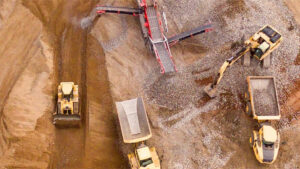THE PHILIPPINE government approved several nickel mining projects despite allegations of insufficient consultation with local communities and concerns over risks to health, the environment and livelihoods, according to Amnesty International Philippines.
In a statement, the human rights group criticized the approval process, saying it had failed to meet standards for free, prior and informed consent required under domestic and international laws.
Many of the affected communities are indigenous groups that rely on natural resources for survival, it added.
“Indigenous peoples and rural communities are paying a heavy price for the world’s scramble for energy transition minerals,” Amnesty International Philippines Chairperson Veronica V. Cabe said in the statement.
“They are now being forced to endure the negative impacts of these mining operations on their health, livelihoods and access to clean water,” she added.
Amnesty International Philippines’ 128-page report discussed how the Philippine nickel boom allegedly harms human rights of communities in Santa Cruz, Zambales and Brooke’s Point, the ancestral home of the Palawan indigenous people of Palawan province.
The Philippines is the world’s second-largest supplier of nickel ore, a key component in electric vehicle batteries.
The report highlighted community claims of pollution, deforestation and the destruction of sites deemed sacred by indigenous groups. The seven mining companies named in the report denied the allegations against them, the group said.
Environment Assistant Secretary for Strategic Communications Rochelle Elena A. Gamboa did not immediately reply to a Viber message seeking comment.
In Santa Cruz and Brooke’s Point, communities reported a rise in health problems since the opening of the mines, including asthma, coughing, respiratory difficulties, as well as skin conditions and irritation of the eyes, throat, and skin, Amnesty International said.
They also cited a decline in water quality, with several freshwater sources turning “reddish-brown,” affecting the livelihood of fishermen and leading to lower crop yields.
Amnesty International urged authorities to halt the projects until adequate consultations are conducted and stronger safeguards are enforced.
“The Philippine government must suspend these mining operations until it has conducted an urgent investigation into human rights and environmental abuses, while nickel mine operators must put human rights at the center of their operations,” Amnesty International’s Business and Human Rights researcher Alysha Khambay said.
Ms. Cabe said the two communities had to deal with “seriously flawed consultation processes” due to misrepresentation and a lack of information.
Indigenous and rural communities were not properly informed about their human rights and environmental risks associated with nickel mining, according to the report.
“In both Santa Cruz and Brooke’s Point, people who rely on their natural environment to sustain their livelihoods reported being unable to access information crucial to understanding the impact of nickel mining on their communities,” it said. “In many cases, project documents such as environmental impact assessments were not provided.”
In some instances, community members were denied access to project documents, hindering their ability to make informed decisions about the mining projects, according to the group.
“Companies have a responsibility to conduct due diligence to identify and prevent human rights abuses linked to their operations or business relationships and address negative impacts when they are found to occur,” Amnesty International said.
The research, conducted from September 2023 to October 2024, involved interviews with 90 community members. — Chloe Mari A. Hufana

